It has been a week of power struggles in more than one way.
The first, we were without electricity for 4 days last week and without internet for 6 days. Two days without power due to a tall truck that took down the wire near Gideon's home and the other two days for who knows what...maybe because of the furious rains that came in!
Perhaps more important, the processing of power distribution in what it means to enter into this community. In our preparations, we explored the realities of power in a community that isn't used to seeing many “Vanilla Lattes”, the baggage that comes with it and the unavoidable topic that we have CHOSEN to enter into a hard place plagued by injustices, extreme poverty and unfathomable living conditions. I think that we are in a dangerous situation if we ignore these conditions, yet since our pre-trip planning a new dynamic has emerged.
***I want you to know that we are having a wonderful time. My thoughts below outline some of the questions that we face. These experiences are also surrounded by warm hospitality, people that are interested in learning about us and leaders that have blessed us in many ways.
The Mitatus
Mitatus are imported used white Toyota vans from Japan and Europe converted to squish together 15 passengers, and whose muffler secretes enough soot to make a gravel road look like asphalt. Each one tells a story with a layer of stickers on the exterior, blaring music and the young man hanging out the side herding passengers at each stop. The roads are FULL of these vehicles...people line the streets waiting to be picked up.
As I wait on the side of the road, I become the newest prey for the 20-30 shilling (40-50 cent) trip down the road. “Mzungu CAAM HEEYR”, (White person, come here) they call. I look at the route on the side of the van making sure that it is headed in the correct direction and jump in. I soon wish that my 34 inch inseem was cut in half as my knees dig into the seat ahead of me. Around me, people are talking...perhaps catching up on the upcoming Kenyan election, maybe pointing out a nice car or commenting on the driver's lead foot. But me...I don't know. I have no clue what they are saying...later to find out that they are joking about charging me more because I am white.
Down the pothole ladened road we go...at the mercy of one of many CRAZY matatu drivers...with inches between us and the car next to us, ahead of us and behind. Music blaring, Swahili lingo flying, stenches permeating, coins passing...and the white kid in the back seat.
Where the streets have no name...
I wouldn't know where to begin in painting a picture for you of what Kibera might look like. Some day, I hope to be able to find a way to share its personality, its appearance and some of the stories that are derived from it with you...but for now-as I have already begun to lose my initial shock, I will share some of my first impressions.
A bit of context on Kibera:
Kibera is the largest slum in Africa...Although there is now way to completely tell, there are around 1,000,000 people living in this area. NWesterners...this is more than Seattle and Tacoma proper combined. Michiganders...more than all of GR Metro. They live in approx. 2 square miles. (5,280 feet by 10,560 feet). A railroad track cuts between their beloved turf and it sits in the midst of a valley. Kenya is in the process of dealing with a dilemma in which rural villagers are moving to Nairobi in groves. This has been a common occurrence for decades. Historically, people moved to the city to make some money, to get educated or to make connections that would support their rural agricultural needs. Times have changed...and now they are not returning to their native communities. As people come to the city, the only affordable housing lies within the slums. While Kibera is by far the largest slum in Nairobi, there are 169 other slums throughout the rest of the city. 170 slums in a city of 4.5 million people! The main distinguishing factor about a slum is that the government owns the land, and residents are not allowed to build permanent structures on it. Consequently, infrastructures are terrible and people are forced to make temporary dwellings...usually mud/stick walls and rusty tin roofs. Electricity is available yet water comes from the river flowing through this sewerless community. Each year, people live with the question of whether or not they will have a place to call home in the future.
As we entered Kibera for the first time, It was raining. I got to pull my hood up over my head, focus on the muddy ground and seclude myself from the thousands of people around me. My long pants and jacket covered my pasty arms and legs, and I could bury my face by pretending to concentrate on the puddles. Was it that I didn't want to see? Or maybe, that I didn't want to be seen? Each time I enter the slums, I continually question whether I ever will or ever shall “belong”.
On Sunday, when returning from church in Kibera, a man began walking next to me and shared some of his thoughts in English: “Take a look around, these are my people. They are black. You are white. What are you doing here?” I blanked...I had absolutely nothing to say and kept walking. I wished that it was raining so that I could put my hood over my head again. He was right. What am I doing here? What gives me the right to enter into his community? Some might find this a bit cruel on his part...but you have to understand that many of these people have been taken advantage of by politicians, tourists, Hollywood actors, institution, non-profits, etc. How can I expect him to determine whether or not I am here to do the same?
For the past 25 years, I have been granted a sense of power. I am white. I am a male. I am balding and look older. I am educated. I have money. For the past 10 days, these seemingly positive attributes have been challenged. I have to rely on others to understand the language around me. I am White. I am Educated. I can leave whenever I want to...I don't “belong”.
Power is fearlessness.
Power is money.
Power is communicating.
Power is opportunity.
Power is belonging.
Loving life, identifying challenges and feeling blessed,
joel
Tuesday, September 18, 2007
Subscribe to:
Post Comments (Atom)
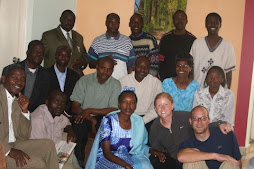
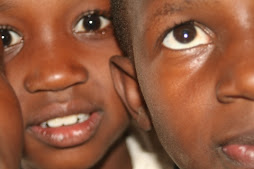
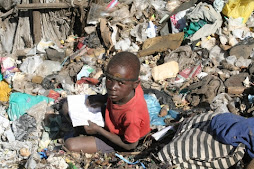
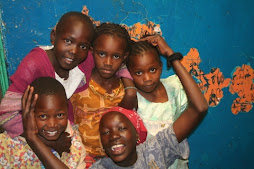
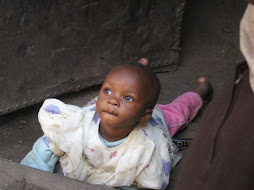
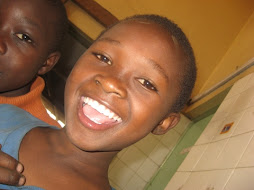
2 comments:
It is so good to hear your stories... it makes me homesick for Africa and Guatemala.. it is funny how the stories are so similar coming from different sides of the world. May God continue to bless you time there!
We're praying for you guys Joel. Hey you didn't mention NMers in your blog that's more people than in our whole state. :)Are you Ok without any answers?
sian
Post a Comment